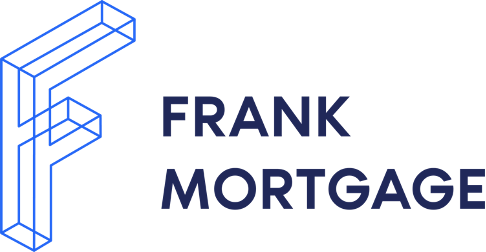Thinking about getting a 25-Year Fixed Mortgage Rate?
Compare the latest 25-year fixed mortgage rates from major banks, credit unions and mortgage brokers.
Canada's Best Mortgage Rates By Mortgage Term
Evaluate Canada’s best mortgage rates in one place. Rates.ca’s Rate Matrix lets you compare pricing for all key mortgage types and terms.
Rates are based on an average mortgage of $500,000 and subject to change based on filter criteria.
Updated 19:02 on Jul 26, 2025| Placeholder |
Insured
The rates in this column apply to borrowers who have purchased mortgage default insurance.
This is required when you purchase a home with less than a 20% down payment.
The home must be owner-occupied and the amortization must be 25 years or less.
|
80% LTV
The rates in this column apply to mortgage amounts between 65.01% and 80% of the property value. The home must be owner-occupied and have an amortization of 25 years or less. You must have purchased it for less than $1 million. These rates are not available on refinances. Refinances require "Uninsured" rates.
|
65% LTV
The rates in this column apply to mortgage amounts that are 65% of the property value or less. The home must be owner-occupied and have an amortization of 25 years or less. You must have purchased it for less than $1 million. These rates are not available on refinances. Refinances require "Uninsured" rates.
|
Uninsured
The rates in this column apply to purchases over $1 million, refinances and amortizations over 25 years. More info on the differences between insured and uninsured rates.
|
Bank Rate
Bank Rate is the mortgage interest rate posted by the big banks in Canada.
|
|---|---|---|---|---|---|
| 1-year fixed rate | 4.69% | 4.19% | 4.19% | 5.59% |
5.49%
|
| 2-years fixed rate | 4.04% | 3.89% | 3.89% | 4.39% |
4.79%
|
| 3-years fixed rate | 3.87% | 3.99% | 3.99% | 4.24% |
4.29%
|
| 4-years fixed rate | 3.99% | 3.99% | 3.99% | 4.44% |
4.39%
|
| 5-years fixed rate | 3.91% | 3.89% | 3.89% | 3.91% |
4.09%
|
| 7-years fixed rate | 4.39% | 4.24% | 4.24% | 5.19% |
5.00%
|
| 10-years fixed rate | 5.04% | 4.34% | 4.34% | 5.29% |
6.09%
|
| 3-years variable rate | 4.15% | 4.30% | 4.30% | 4.40% |
6.35%
|
| 5-years variable rate | 3.95% | 3.95% | 3.95% | 4.05% |
4.25%
|
| HELOC rate | N/A | N/A | N/A | N/A |
N/A
|
| Stress Test | 5.25% | 5.25% | 5.25% | 5.25% |
N/A
|
Today's Best Mortgage Rates in Canada
Evaluate Canada’s best mortgage rates in one place. You can compare the most current mortgage rates and monthly payments from 175+ banks and lenders across Canada.
Rates are based on an average mortgage of $500,000 and subject to change based on filter criteria.
| Lender
|
Insured
|
Insurable
|
Uninsured
|
|---|---|---|---|
|
Mortio Financial Corp
|
3.99%
$2,627.39 / month
|
4.24%
$2,695.56 / month
|
4.14%
$2,668.19 / month
|
|
Frank Mortgage
|
4.09%
$2,654.55 / month
|
4.19%
$2,681.85 / month
|
4.09%
$2,654.55 / month
|
|
Northwood Mortgage Ltd.
|
4.14%
$2,668.19 / month
|
4.24%
$2,695.56 / month
|
4.24%
$2,695.56 / month
|
|
Mortgage Outlet - Russel Inspektor
|
4.29%
$2,709.29 / month
|
4.29%
$2,709.29 / month
|
4.29%
$2,709.29 / month
|
|
Innovation Federal Credit Union
|
4.39%
$2,736.87 / month
|
4.39%
$2,736.87 / month
|
4.39%
$2,736.87 / month
|
|
True North Mortgage
|
2.99%
$2,363.66 / month
|
2.99%
$2,363.66 / month
|
2.99%
$2,363.66 / month
|
|
The Mortgage Advisors
|
3.87%
$2,594.98 / month
|
3.87%
$2,594.98 / month
|
3.87%
$2,594.98 / month
|
|
Nesto
|
3.91%
$2,605.76 / month
|
3.91%
$2,605.76 / month
|
3.91%
$2,605.76 / month
|
|
Hypotheca
|
3.94%
$2,613.86 / month
|
3.94%
$2,613.86 / month
|
3.94%
$2,613.86 / month
|
|
MortgagestoGo
|
3.94%
$2,613.86 / month
|
3.94%
$2,613.86 / month
|
3.94%
$2,613.86 / month
|
|
One Link Mortgage & Financial
|
3.95%
$2,616.57 / month
|
3.95%
$2,616.57 / month
|
3.95%
$2,616.57 / month
|
|
Sudbury Credit Union
|
3.99%
$2,627.39 / month
|
3.99%
$2,627.39 / month
|
3.99%
$2,627.39 / month
|
|
City Wide Financial Corp
|
3.99%
$2,627.39 / month
|
3.99%
$2,627.39 / month
|
3.99%
$2,627.39 / month
|
|
The Police Credit Union
|
3.99%
$2,627.39 / month
|
3.99%
$2,627.39 / month
|
3.99%
$2,627.39 / month
|
|
Monster Mortgage
|
3.99%
$2,627.39 / month
|
3.99%
$2,627.39 / month
|
3.99%
$2,627.39 / month
|
|
Northern Birch Credit Union
|
3.99%
$2,627.39 / month
|
3.99%
$2,627.39 / month
|
3.99%
$2,627.39 / month
|
|
Mainstreet Credit Union
|
3.99%
$2,627.39 / month
|
3.99%
$2,627.39 / month
|
3.99%
$2,627.39 / month
|
|
East Coast Mortgage Brokers
|
4%
$2,630.10 / month
|
4%
$2,630.10 / month
|
4%
$2,630.10 / month
|
|
Mortgage Brokers City Inc
|
4.04%
$2,640.95 / month
|
4.04%
$2,640.95 / month
|
4.04%
$2,640.95 / month
|
What is a 25-year fixed mortgage rate?
A 25-year fixed mortgage rate means your interest rate is locked in for 25 years.
It's the longest mortgage term available in Canada, and RBC Royal Bank is the only lender that currently offers this term.
Pro and Con of a 25-year fixed mortgage rate
There are very few people who would opt to lock in a rate for 25 years, aside mostly from investors. But one of the benefits of an extra long mortgage term is the security of knowing that the mortgage payment and interest rate will remain stable for the duration of the term.
The downside of locking in a rate for such a long period is the rate premium. That long-term price stability comes at a steep price. The posted interest rate on RBC's 25-year fixed mortgage was 8.75% as of October 2020.
Frequently asked questions about 25-year mortgage rates
Still have some questions about 25-year mortgage rates? Here are some questions to help you decide.
Which is better to work with: A bank or a mortgage broker?
By going to the bank, home buyers are going directly to a lender that you may already have a financial history with. Having a history with your bank may come in handy because you are able to consolidate all your services with a provider you’ve worked with and trust, plus you may be eligible for discounts.
A broker on the other hand, provides home buyers the advantage of having access to a number of rates offered by multiple lenders, and they do the legwork and negotiating for you to get the best available rate and terms.
Brokers don’t always offer the same rates or products as the banks so it can be confusing for homeowners. Rates.ca has an easy-to-use mortgage rate comparison tool that shoppers can use to compare rates online from brokers, banks, credit unions, and other lenders at once.
Should I choose a fixed or variable rate?
Choosing fixed or variable entirely depends on your financial habits and where you plan to see your mortgage goals in the coming years.
If interest rates are low, you should try to lock in a fixed rate, as having a fixed rate will keep the interest the same throughout your entire term. There’s no predicting how the prime rate will fluctuate, so longer term financial planning with variable rates will be difficult and potentially stressful if you prefer to know what your rates will be every month.
Another aspect to consider is if the difference between a variable and fixed rate is significant, it may not be worth paying the premium for the fixed rate.
If you’re still having trouble deciding, look through our guide for more information.
What are prepayment penalties?
A prepayment penalty is a fee that your lender can charge if you make more than the allowed payments towards your mortgage or if you decide to break your mortgage contract early.
A lot can change over the course of having a long mortgage, from personal events to economy turns, so knowing about prepayment penalties and what causes them is a factor to consider before choosing a term for 25 years.
These penalties can cost you thousands of dollars and the penalty can be based on a few of the following factors:
- How much you want to pay off early
- How many months remain on your contract
- Interest rates
Prepayment penalties vary depending on lender, but the penalty will usually be the higher of the amount of three months interest on what you still owe or the interest rate differential (IRD). The IRD is the difference between your interest rate and the interest rate that your lender can charge today.
























